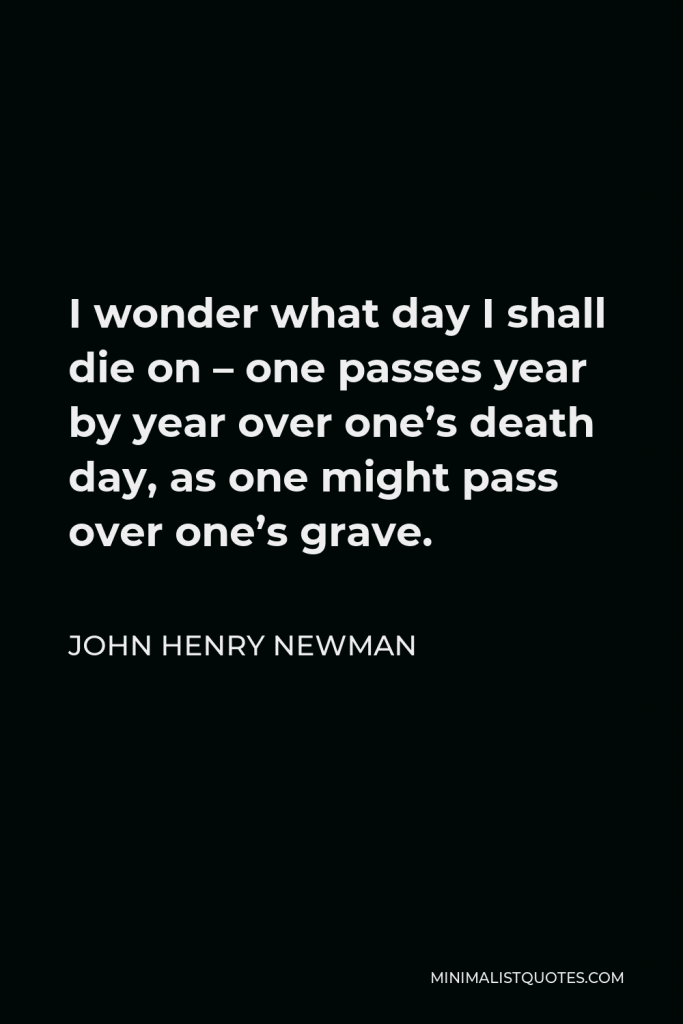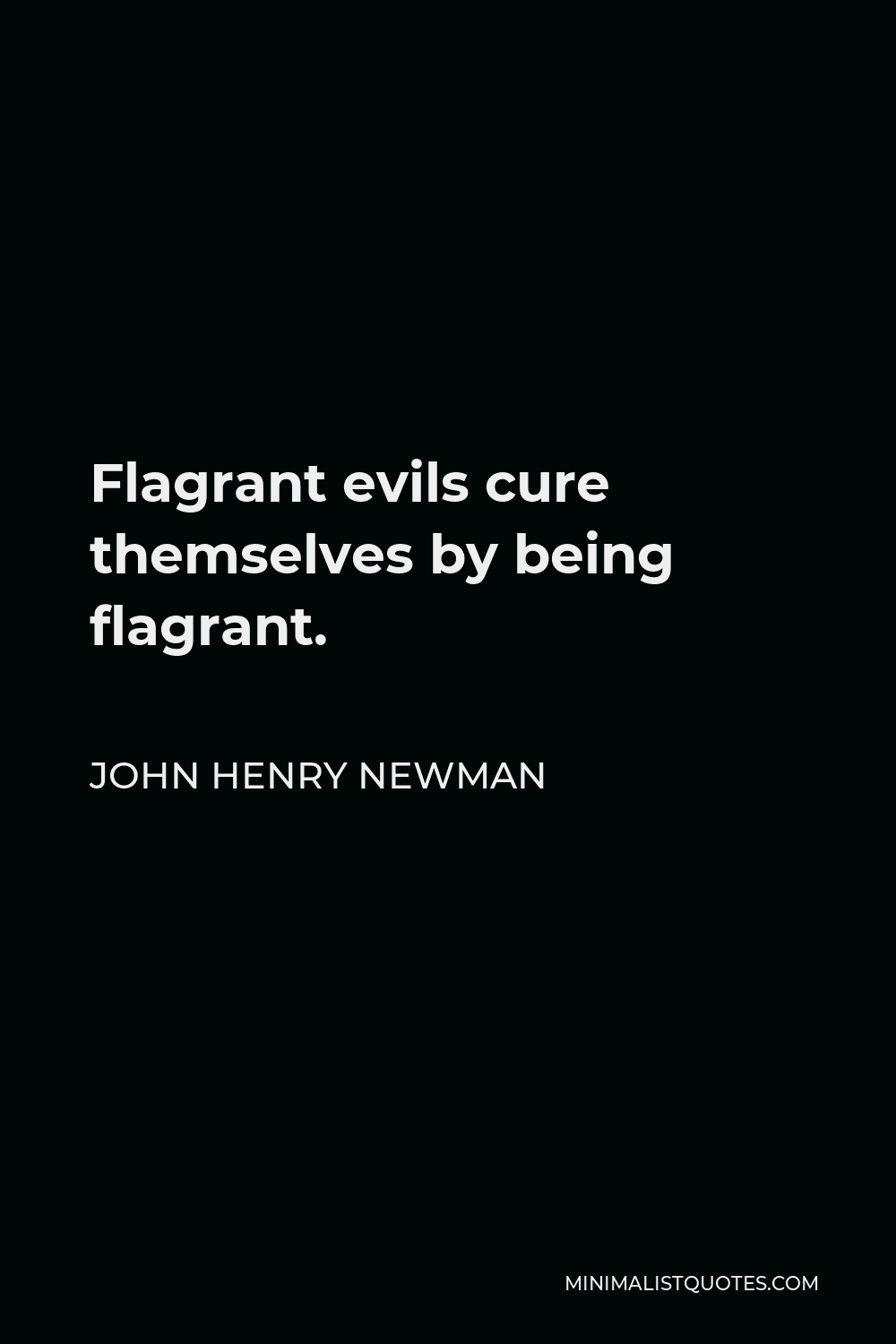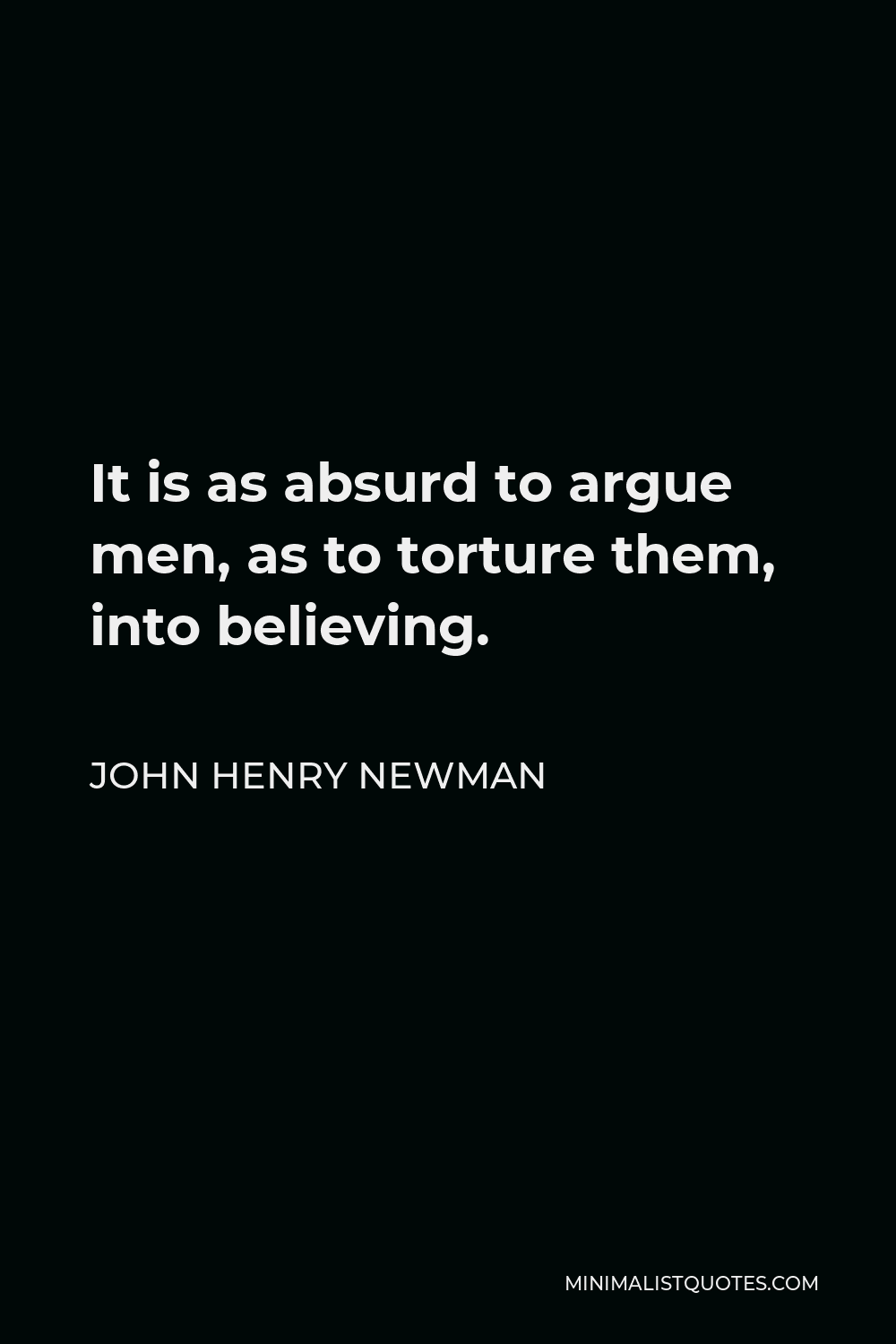All men have a reason, but not all men can give a reason.
JOHN HENRY NEWMANFaith is illuminative, not operative; it does not force obedience, though it increases responsibility; it heightens guilt, but it does not prevent sin. The will is the source of action.
More John Henry Newman Quotes
-







-






It is not God’s way that great blessings should descend without the sacrifice first of great sufferings. If the truth is to be spread to any wide extent among the people, how can we dream, how can we hope, that trial and trouble shall not accompany its going forth.
JOHN HENRY NEWMAN -






It is often said that second thoughts are best. So they are in matters of judgment but not in matters of conscience.
JOHN HENRY NEWMAN -







Life passes, riches fly away, popularity is fickle, the senses decay, the world changes. One alone is true to us; One alone can be all things to us; One alone can supply our need.
JOHN HENRY NEWMAN -







Conscience is the aboriginal Vicar of Christ.
JOHN HENRY NEWMAN -






Lions would have fared better, had lions been the artists.
JOHN HENRY NEWMAN -







Lead, kindly light, amid the encircling gloom, lead thou me on.
JOHN HENRY NEWMAN -







O loving wisdom of our God when all was sin and shame, a second Adam to the fight and to the rescue came.
JOHN HENRY NEWMAN -







I wonder what day I shall die on – one passes year by year over one’s death day, as one might pass over one’s grave.
JOHN HENRY NEWMAN -






Flagrant evils cure themselves by being flagrant.
JOHN HENRY NEWMAN -







Purity prepares the soul for love, and love confirms the soul in purity.
JOHN HENRY NEWMAN -






Such is the constitution of the human mind, that any kind of knowledge, if it be really such, is its own reward.
JOHN HENRY NEWMAN -






It is as absurd to argue men, as to torture them, into believing.
JOHN HENRY NEWMAN -






And with the morn those angel faces smile Which I have loved long since and lost awhile.
JOHN HENRY NEWMAN -







How many writers are there… who, breaking up their subject into details, destroy its life, and defraud us of the whole by their anxiety about the parts.
JOHN HENRY NEWMAN -






I sought to hear the voice of God and climbed the topmost steeple, but God declared: “Go down again – I dwell among the people.
JOHN HENRY NEWMAN







